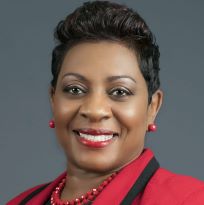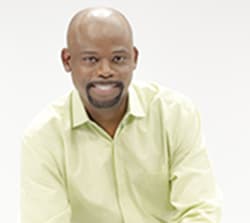Address by Jamaica’s Prime Minister at CARICOM’s 29th Heads Of Government conference
KINGSTON, Jamaica – Jamaica’s Prime Minister, the Hon. Bruce Golding addressed CARICOM at the 29th Regular Conference Of Heads Of Government July 1.
We have gathered again, as we do so frequently, this time in the beautiful islands of Antigua and Barbuda, and we must thank the government and people of Antigua and Barbuda for receiving us as splendidly as they have done.
We have come together as leaders of the 15 member countries and 5 associate countries that make up this Community. And let me say this, in case there be any doubt that still lingers: JAMAICA REMAINS FIRMLY COMMITTED TO CARICOM!
We meet again amidst mixed feelings of HOPE and FRUSTRATION:
HOPE that the dreams of CARICOM will yet be
fulfilled; and
FRUSTRATION that the dreams of CARICOM have not yet been fulfilled.
[And] What are those dreams?
They are the same as those of people anywhere in the world:
. that that our people may live in a peaceful and safe environment;
. that their rights will be protected and their dignity respected;
. that they may enjoy an improved and ever-improving standard of living and quality of life.
[And] It was in pursuit of those dreams that this Community was created.
It was to secure the realization of those dreams that we created the architecture and established the institutions and mechanisms of the Community, believing as we did that we could achieve more by acting together than by acting alone.
We spend much time bemoaning our lack of progress. We allow ourselves to be consumed by our failures instead of summoning the will to do what must be done to succeed. We curse the darkness instead of shining some light.
The debate as to what we are as against what some feel we should be refuses to be adjourned.
We are what we are – a Community of sovereign nations with a shared history, seeking to forge a common destiny –
. recognizing that sovereign nations can synchronize their efforts for their common good;
. recognizing that in this harsh, fiercely competitive global environment, the challenges we face may be too much for each of us but not too much for the community as a whole.
Nature is the master of all teachers. Every goose flies on its own two wings, exerting its own energy. They are not joined together like Siamese twins. Yet, while they remain separate they are not apart for geese have long learned and demonstrated that they can achieve much more, they can conserve much of their energy and extend themselves over much longer distances by traveling together and confronting the headwinds in strategic formation.
It is useful to remind ourselves of the marvelous synergy in that formation:
. It is said that as each bird flaps its wings, it creates uplift for the bird following behind.
. It is said that by flying in a “V” formation, the whole flock adds 71 percent greater flying range than if each bird flew alone.
. It is said that whenever a goose falls out of formation, it suddenly feels the drag and resistance of trying to fly alone and quickly gets back in line to take advantage of the lifting power of the bird immediately in front.
. It is said that when the lead goose gets tired, it drops back into the formation and another goose takes over the point position.
. It is said that the geese in formation honk from behind to encourage those up front to keep up their speed.
. It is said that when a goose gets sick, two geese drop out of formation and follow it down to help and protect it. They stay with it until it is able to fly again.
There is nothing intrinsically wrong with us Caribbean people. If the geese can learn it and can do it, there is no reason why we can’t.
Our relationships are defined in the Revised Treaty of Chaguaramas. It is a pact that we must honour and to which we must be faithful. It imposes on us obligations to be fulfilled and actions we must take. We may not have done so as assiduously as we should have. There have been instances when we substituted cynicism for enthusiasm, when we despaired instead of being bold enough to dare, when we retreated instead of advanced, when we asked “Why?” instead of “Why not?”
CARICOM has not failed us. If there be any failure it is we who have failed CARICOM!
We need to review the inventory of our accomplishments and our failures. For, yes, there have been accomplishments and they are not to be discounted, discredited or disparaged. [And] where there have been failures, let us redouble our efforts to correct them so that we can move on.
We must recognize that our engagement does not stop at how we deal with each other but must go further to determine how, together, we can deal with the rest of the world – a world which appears at times to be done with us even before we are ready for it.
Time is not going to be kind to us. We are caught in the vortex of the worst global cyclone the world has experienced in my lifetime. [And] the leaders of the world with all their resources, might and power appear to be helplessly disoriented. The multilateral mechanisms and their preventive and response capabilities are clearly in need of redesign and reform. We must raise our collective voices to make that case.
We make no claim to the leadership of the world. We are only – but proudly – the leaders of the Caribbean and claims are justifiably being made on us by the people of the Caribbean especially at this time when they are being battered and bruised by forces that are neither of their making nor within our control.
In this time of crisis, strong leadership is critical. Leaders have the duty to seize the opportunity and rise to the occasion, to go where others are unwilling to go, to grasp where others are unable to reach – if we are to pilot the way through the storm. That is the urgent demand that is made of us as leaders. CARICOM provides the framework. The Caribbean people await our response.


